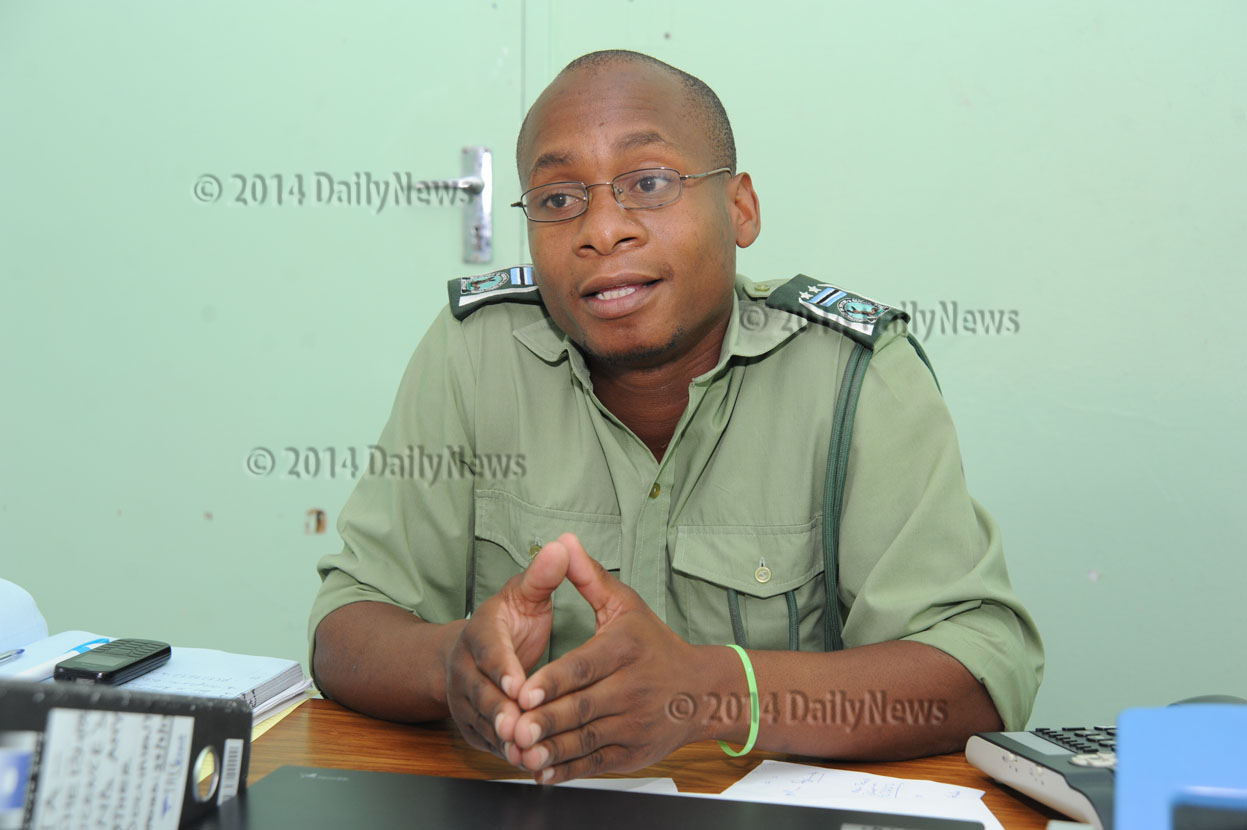Joint patrols bear fruit
27 Mar 2014
Poaching and illegal trade of wild animals is as serious and prevalent an issue today as it was several years ago.
Despite imposing stiffer penalties to curb the vices, poaching and illegal trade of wild animals remains a serious concern in Botswana. However, Kgalagadi Transfrontier Park, located in the extreme south-west of Botswana, can boast a clean record as a secure wildlife sanctuaries in the country, at least for now. It offers natural wildlife viewing for local and international tourists.
Unlike other national parks in the country, poaching is yet to be a problem in the Kgalagadi Transfrontier Park.Illegal activities that include unauthorized hunting, capturing of wildlife are unheard of in the park, thanks to intensive anti-poaching patrols.
Wildlife Officer in the Department of Wildlife and National Parks, Mr Basimane Mokara, says poaching and illegal trade of wild animals such as lion cubs used to be a problem some three years ago but after engaging an anti-poaching unit at Khawa village the problem was arrested.
He said then poaching was rampant inside the Kgalagadi Transfrontier Park in that syndicates targeted lion cubs because they were said to have a lucrative market in South Africa. Mr Mokara, however, noted a marked decline in poaching and illegal trade of wild animals along the Botswana- South Africa border largely due to increased joint border patrols.
He said in areas adjacent the park which had been designated wildlife management areas a few incidents of poaching were reported. Mr Mokara said they worked with Botswana Defense Force, Botswana Police Services and Immigration department to mount effective anti-poaching patrols.
He said he was happy that incidents of poaching had gone down drastically. He said collaboration of patrol teams had made patrolling along boundaries and inner parts of the park more effective.
Mr Mokara said during patrols they make a number of considerations for the safety of visitors and the good management of the parks or reserves. He said they patrol the park to detect any poaching activities that were likely to occur or might have happened.
Regarding rules and regulations governing the trans-frontier park, Mr Mokara explained that trees in Kalahari were slow to reach maturity, thereby producing a very hard wood in the process. When a tree or even a branch falls, he said, it became a new home for a wide variety of seedlings, rodents, reptiles and insects.
He said removing the dead wood would be robbing these organisms of the little protection they had from the natural elements. However, he said people were not allowed to collect firewood in the park.Mr Mokara said feeding of animals and speeding in the park were also not allowed because animals often stood motionless next to the road thereby making them not easily noticeable when driving at high speed.
He advised tourists to adhere to the speed limits of 50 km/h in the park and 20km/h in rest camps. He said for the benefit of organisms living in dunes and riverbeds tourists had to stay on the road because off-road driving had a marked impact on the sensitive ecosystem, not only biologically but also from an aesthetic point of view.
Sub-Inspector Julius Radipeo of Bokspits police station said although the number of poaching and smuggling of wildlife cases had gone down, there were several incidents of livestock smuggling. He said some even went to the extent of trying to smuggle meat to sell in South Africa.
He said most villages in Kgalagadi South were close to the border fence with South Africa hence they end up selling their livestock illegally through the fence. He said he had not experienced problems of poaching in his policing area
Mr Tiroyaone Dibuleleng, an immigration officer at Two Rivers boarder post, shared the same sentiments with sub-inspector Radipeo. He said some residents often wanted to cross the border with the pretext that they were going to fuel their cars but when they searched them they would find raw meat beyond allowed amounts in their cars.
He said they only allowed 25kg of meat to pass through the boarder. Ends
Source : BOPA
Author : Portia Rapitsenyane
Location : KGALAGADI TRANSFRONTIER PARK
Event : Interview
Date : 27 Mar 2014







